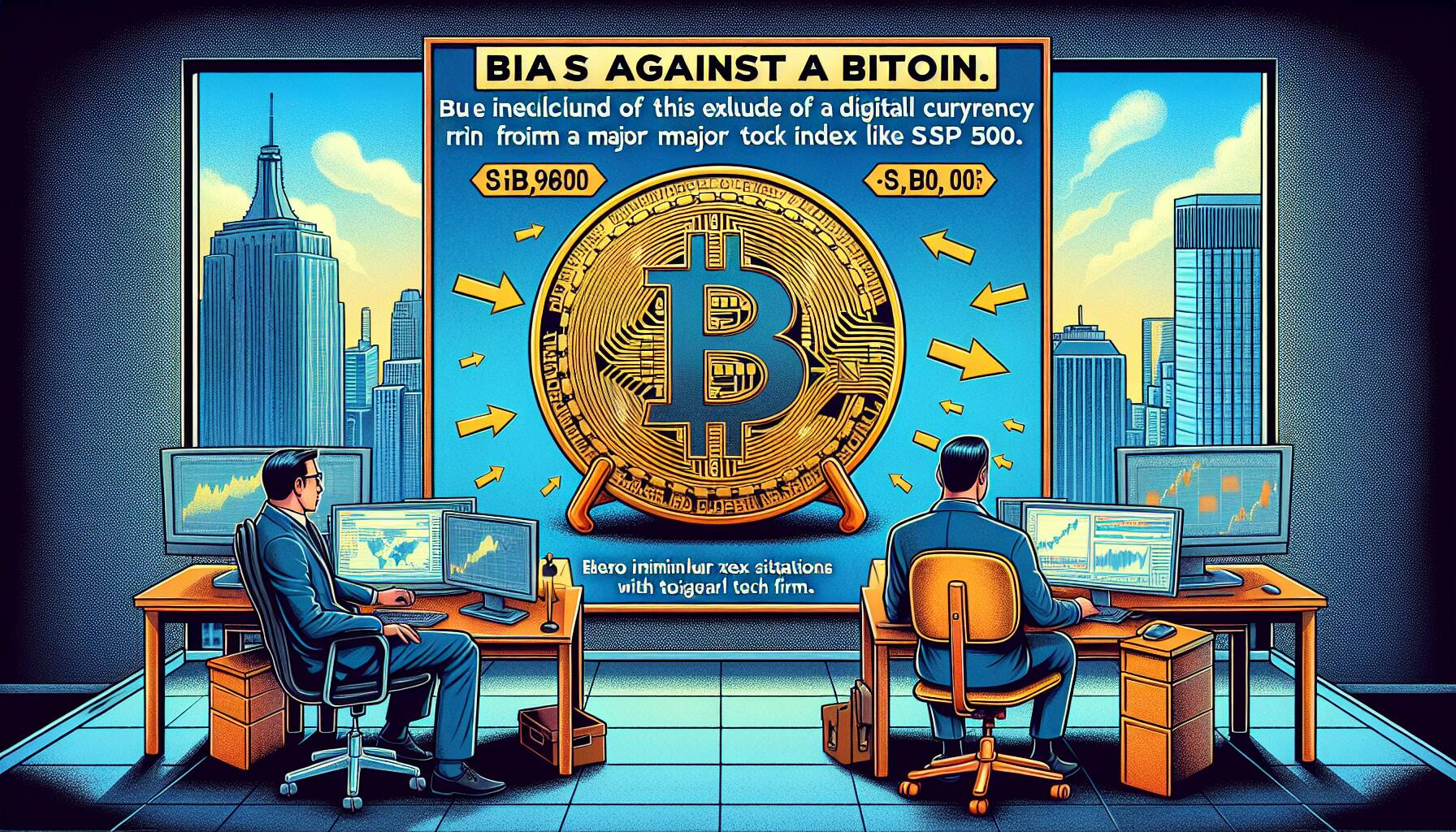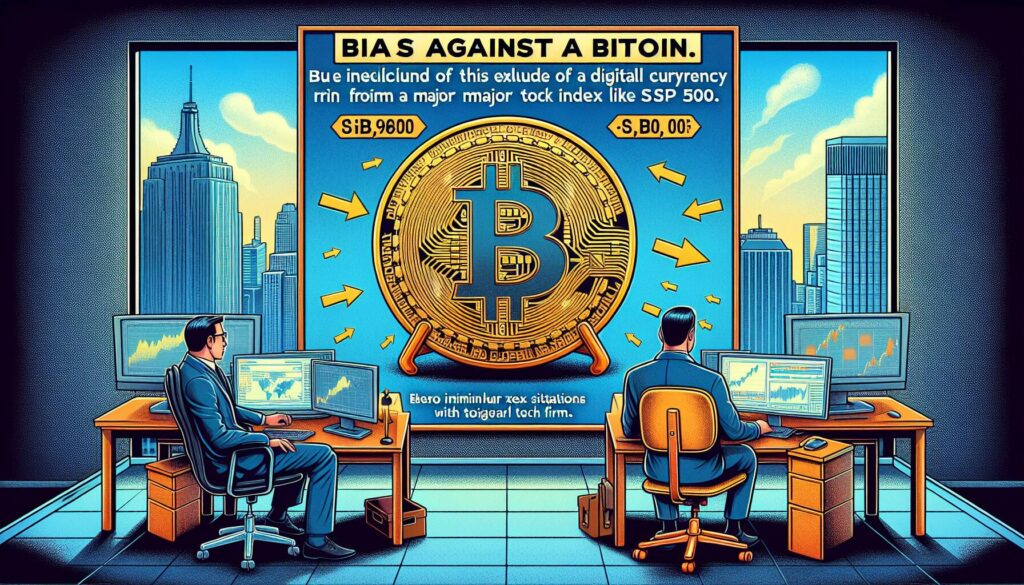The recent exclusion of MicroStrategy from the S&P 500 index has sparked discussions among analysts, particularly regarding a perceived bias against Bitcoin. This mirrors past situations where iconic companies like Tesla and Facebook faced similar snubs. With analysts drawing parallels, the market is buzzing about the implications of this decision and how it reflects broader trends in the cryptocurrency realm.
Despite MicroStrategy’s significant investments in Bitcoin, its stock, MSTR, has been overshadowed by the recent inclusion of Robinhood in the S&P 500. As Robinhood celebrates its achievement, MicroStrategy’s exclusion raises questions about how cryptocurrencies and tech companies are perceived in the current market landscape.
“The past history of index inclusion may suggest that MicroStrategy’s alignment with Bitcoin is not enough to secure a spot in the S&P 500,” experts note, emphasizing the unique challenges faced by cryptocurrency-related companies.
While the S&P 500 continues to soar to record highs, analysts are contemplating the long-term implications for companies connected to the cryptocurrency sector. The ongoing discussion reflects a broader narrative about how established financial indices might weigh traditional assets against emerging digital currencies, shaping investment strategies well into the future.

Bias Against Bitcoin: Market Impact and Implications
The recent discussions around the exclusion of MicroStrategy from the S&P 500 index highlight significant trends in market biases, particularly against companies involved with Bitcoin.
- Exclusion from the S&P 500:
- MicroStrategy’s inability to make it into the S&P 500 raises questions about the market’s perception of Bitcoin-related companies.
- This exclusion mirrors past instances, such as Tesla and Facebook, suggesting a systemic bias in index inclusion.
- Market Trends:
- The S&P 500 is experiencing record highs, indicating a potential disconnect between mainstream financial metrics and companies engaged in cryptocurrency.
- Historical patterns show that stock market behavior often follows peaks with varying consequences for excluded stocks.
- Broader Implications for Investors:
- Investors should be aware of potential biases that could affect the performance of crypto-adjacent companies.
- Exclusions can lead to missed opportunities for growth and innovation associated with cryptocurrency.
- Future Speculations:
- With competitors like Robinhood successfully making it into the index, the question of sustainability and long-term viability for Bitcoin-focused firms becomes critical.
- It ignites debates around regulatory environments and market acceptance for cryptocurrency-based businesses.
Understanding these dynamics could help investors make informed decisions in a rapidly evolving market landscape.
Analyzing Competitive Dynamics in Recent S&P 500 Exclusion News
The ongoing debate around market biases has intensified with the S&P 500’s decision to exclude MicroStrategy while welcomed Robinhood into its ranks. Analysts have drawn parallels between this recent move and the historical exclusions of well-known companies like Tesla and Facebook, highlighting patterns that suggest underlying biases against certain sectors, particularly those associated with cryptocurrencies like bitcoin.
Competitive Advantages: The inclusion of Robinhood signifies a strong endorsement of platform-based, technology-driven financial services, appealing to a younger, tech-savvy demographic. This move could potentially enhance Robinhood’s market visibility and attract more investments, allowing it to capitalize on the growing popularity of retail trading. Additionally, with the divergence from MicroStrategy, which has heavily invested in bitcoin, the S&P 500 might be perceived as maintaining a traditional investment approach, potentially appealing to more conservative investors wary of cryptocurrency volatility.
Disadvantages: However, the exclusion of MicroStrategy raises concerns about the S&P 500’s adaptability and openness to innovation. As bitcoin adoption grows, this bias could alienate a segment of investors who view bitcoin as a legitimate asset class. Furthermore, this decision may create challenges for firms focused on blockchain technologies and digital assets, as it sends a message of skepticism regarding their investment potential in mainstream finance.
This situation is likely to benefit traditional, tech-heavy firms like Robinhood, whereas it could create problems for MicroStrategy and similar entities, which may struggle for recognition and investment through conventional channels. As investors increasingly look for diversification and innovation in their portfolios, the implications of this exclusion could spur discussions about the future inclusivity of financial indices like the S&P 500.

















